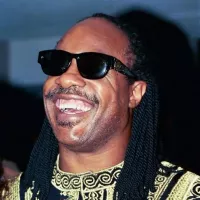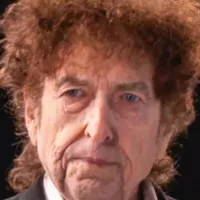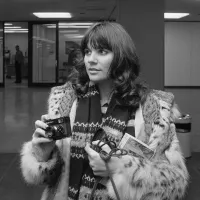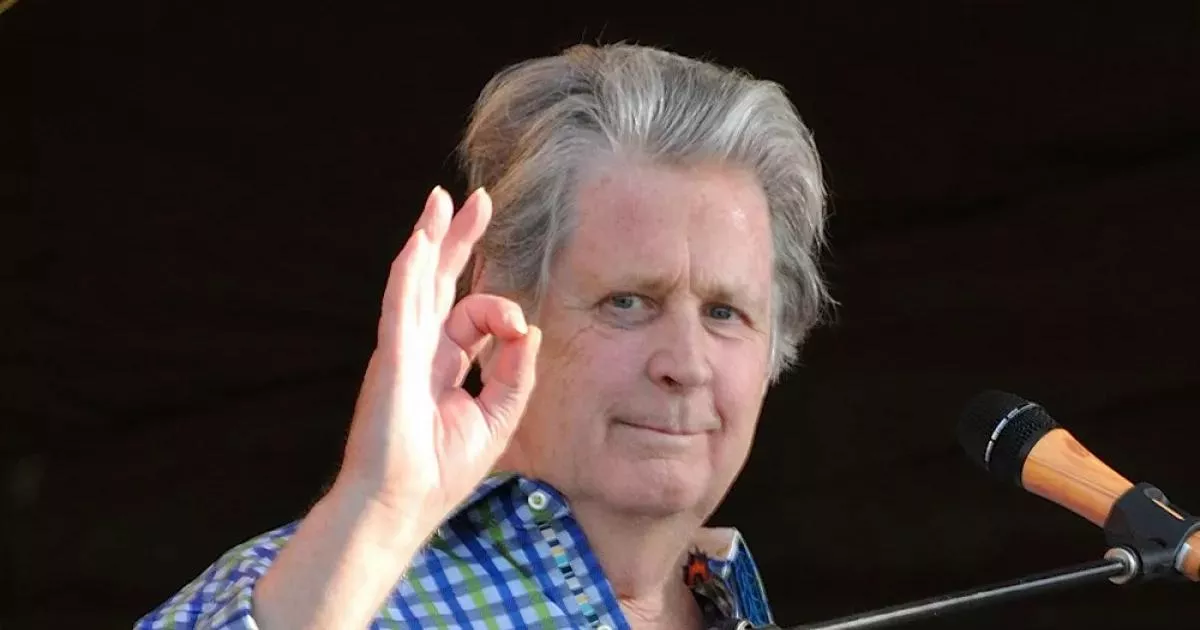Brian Wilson is an American musician, singer, songwriter, and record producer, best known as a co-founder of the Beach Boys. Recognized for his innovative approaches to pop composition and mastery of recording techniques, he's considered one of the most significant songwriters of the 20th century. His work is characterized by high production value, complex harmonies and orchestrations, vocal layering, and introspective themes. He is also known for his vocal range and mental health struggles.
June 20, 1942: Brian Wilson's Birth
On June 20, 1942, Brian Douglas Wilson was born at Centinela Hospital Medical Center in Inglewood, California, to Audree Neva and Murry Wilson.
1943: First experience with Gershwin
At age two, Brian Wilson heard Glenn Miller's 1943 rendition of Gershwin's "Rhapsody in Blue", which left a lasting emotional impact on him.
1944: Birth of Dennis Wilson
In 1944, Dennis Wilson, Brian Wilson's younger brother, was born.
1946: Birth of Carl Wilson
In 1946, Carl Wilson, Brian Wilson's younger brother, was born.
1954: Inspired by Rock Around the Clock
In 1954, Brian Wilson recalled Bill Haley's "Rock Around the Clock" as the first music he felt compelled to learn and sing.
1956: Freshmen Favorites First Pop Album
In 1956, The Four Freshmen's album Freshmen Favorites was the first pop album that Brian Wilson listened to in its entirety.
1958: Voices in Love Influenced Brian
Brian Wilson regarded Voices in Love by The Four Freshmen from 1958 as "probably the greatest single vocal album I've ever heard".
October 1959: Submission of "My Philosophy" Essay
In October 1959, Brian Wilson submitted an essay titled "My Philosophy" for his Senior Problems course, expressing his ambition to make a name for himself in music.
September 1960: Enrollment at El Camino College
In September 1960, Brian Wilson enrolled as a psychology major at El Camino College in Los Angeles, while also pursuing music.
1961: "Surfin'" Becomes a Hit
In 1961, "Surfin'" became a hit in Los Angeles, reaching 75 on the national Billboard sales charts after being produced by Hite and Dorinda Morgan on Candix Records. The group's name was changed to the Beach Boys by Candix Records. The Beach Boys' major live debut was at the Ritchie Valens Memorial Dance on New Year's Eve, 1961. Just days before, Wilson had received an electric bass from his father.
1961: Beginning of Professional Career
In 1961, Brian Wilson began his professional career as a member of the Beach Boys, functioning as the band's songwriter, producer, co-lead vocalist, bassist, keyboardist, and de facto leader.
1961: Crafting "Surfer Girl"
In 1961, Brian Wilson crafted his first entirely original melody, "Surfer Girl", inspired by a Dion and the Belmonts rendition of "When You Wish Upon a Star".
1961: Musical Tastes
In 1961, Brian Wilson mentioned that his particular favorites included Chuck Berry, the Coasters, and the Everly Brothers.
1961: Relationship with Judy Bowles
In mid-1961, Brian Wilson met Judy Bowles at a baseball game, beginning his first serious relationship.
1961: Debut of "the Pendletones"
In the autumn of 1961, the three Wilson brothers, Mike Love, and Al Jardine debuted their first music group together, called "the Pendletones". Brian Wilson and Mike Love co-wrote the group's first song, "Surfin'", at Dennis's suggestion, and Murry became their manager.
1961: Interest in the Four Freshmen diminished
It is likely that Brian Wilson learned nearly the entirety of the Four Freshmen's recorded repertoire through 1961, after which his obsession with the group diminished.
October 1962: Release of "The Surfer Moon"
In October 1962, Safari Records released "The Surfer Moon" by Bob & Sheri, the first record to credit Brian Wilson as producer.
1962: Songwriting success
From 1962 to 1979, Brian Wilson wrote or co-wrote over two dozen U.S. Top 40 hits for the Beach Boys.
1962: Signing with Capitol Records and Gaining Production Control
In 1962, Brian Wilson and the Beach Boys signed a seven-year contract with Capitol Records. Wilson negotiated with Capitol to record outside the label's studios and secured production control over their debut album, 'Surfin' Safari'.
1962: Signing with Capitol Records
In 1962, the Beach Boys signed with Capitol Records, marking a significant step in their career. Brian Wilson became the first pop musician credited for writing, arranging, producing, and performing his own material.
1962: Meeting Marilyn Rovell
In August 1962, Brian Wilson met Marilyn Rovell, who would later become his wife.
March 1963: First use of the Wrecking Crew
In March 1963, Brian Wilson first used the Wrecking Crew for productions with the Honeys.
March 1963: Release of "Surfin' U.S.A."
In March 1963, Capitol released "Surfin' U.S.A.", the Beach Boys' first top-ten single. The accompanying album peaked at number two on the Billboard charts by July, cementing the Beach Boys as a major commercial act.
July 1963: Release of "Surf City"
In July 1963, Brian Wilson co-wrote "Surf City" with Jan Berry, which topped U.S. charts, his first composition to do so.
July 1963: Release and Success of "Surfer Girl" LP
In July 1963, Brian Wilson recorded Surfer Girl, officially credited as The Beach Boys' producer. The LP was released in September, reaching number seven on the national charts.
1963: First use of string section
Brian Wilson first used a string section on "The Surfer Moon" in mid-1963.
1963: Engagement to Judy Bowles
During Christmas 1963, Brian Wilson and Judy Bowles got engaged, with plans to marry the following December.
1963: Surf City, Dead Man's Curve
In 1963, Brian Wilson co-wrote Jan and Dean's "Surf City" and "Dead Man's Curve".
1963: Release of "Surf City"
In 1963, Brian Wilson wrote or co-wrote more than two dozen U.S. Top 40 hits, including the number-one hit "Surf City".
1963: Producing The Honeys
Throughout 1963, Brian Wilson began producing the Rovell Sisters, a girl group, pitching them to Capitol as "the Honeys".
1963: Be My Baby
Upon hearing the Ronettes' 1963 hit "Be My Baby" on his car radio, Brian Wilson immediately pulled over and declared it the greatest record he had ever heard.
April 1964: Release of "He's a Doll" by The Honeys
In April 1964, Brian Wilson released "He's a Doll", the fourth single by The Honeys, exemplifying his attempts to become an entrepreneurial producer.
May 1964: Release of "I Get Around"
In May 1964, The Beach Boys' single "I Get Around" was released, becoming their first U.S. number-one hit and representing a response to the British Invasion.
December 1964: Psychiatrist visit due to work-related fatigue
Following a flight incident in Houston in December 1964, Marilyn arranged Brian Wilson's first psychiatrist visit, which ruled his condition was due to work-related fatigue.
December 1964: Marriage to Marilyn Rovell
In December 1964, Brian Wilson married Marilyn Rovell.
December 23, 1964: Breakdown on Flight to Houston
On December 23, 1964, Brian Wilson experienced a breakdown on a flight from Los Angeles to Houston, sobbing uncontrollably due to stress over his recent marriage. He played the show in Houston but was replaced for the rest of the tour.
1964: Greatest Record Ever
After Phil Spector's "You've Lost That Lovin' Feelin'" (1964) became a hit for the Righteous Brothers, Brian Wilson called co-writers Barry Mann and Cynthia Weil to laud the record as the greatest ever and expressed his desire to work with them in the future.
1964: Ending Engagement with Judy Bowles
Around 1964, Brian Wilson and Judy Bowles separated. He had gradually become romantically involved with Marilyn Rovell.
1964: Influence of Mary Poppins soundtrack
Brian Wilson's other significant musical influences include Disney film soundtracks such as Mary Poppins (1964).
1964: Psychological Strain and Shift Away from Surf Themes
By late 1964, Brian Wilson faced mounting psychological strain from career pressures and began distancing himself from the Beach Boys' surf-themed material.
1964: First Nervous Breakdown and Instrumental Palette Maximization
Following his first nervous breakdown in 1964, Brian Wilson aimed to maximize his instrumental palette, drawing inspiration from Phil Spector's techniques but aiming for audio clarity.
1964: Tape Splicing on Recordings
In 1964, Brian Wilson began performing tape splices on his recordings to facilitate difficult vocal sections for The Beach Boys.
1964: I Get Around, Little Honda
In 1964, Brian Wilson co-wrote "I Get Around" and the Hondells' "Little Honda".
1964: Nervous Breakdown and Shift in Focus
In 1964, Brian Wilson experienced a nervous breakdown and consequently resigned from regular concert touring to concentrate on songwriting and production.
1964: Release of "I Get Around"
In 1964, Brian Wilson wrote or co-wrote more than two dozen U.S. Top 40 hits, including the number-one hit "I Get Around".
1964: Relocation to Hollywood Boulevard Apartment
In late 1964, Brian Wilson relocated to an apartment on Hollywood Boulevard, marking his first independence from familial oversight and where he began cultivating a new social circle.
1964: International Tours and Album Production
Throughout 1964, Brian Wilson toured internationally with the Beach Boys and wrote and produced their albums Shut Down Volume 2, All Summer Long, and The Beach Boys' Christmas Album.
January 1965: Withdrawal from Touring
In January 1965, Brian Wilson declared that he would be withdrawing from future tours. Wilson attributed his decision partly to a jealousy of Spector and the Beatles.
February 1965: Glen Campbell and Bruce Johnston Step In
In February 1965, Glen Campbell continued substituting for Brian Wilson on tour, and Wilson produced Campbell's solo single, "Guess I'm Dumb", as a gesture of appreciation. Bruce Johnston was subsequently hired as Wilson's permanent touring replacement.
December 1965: Collaboration with Tony Asher for 'Pet Sounds'
In December 1965, Brian Wilson enlisted Tony Asher as his lyricist for the Beach Boys' album 'Pet Sounds'.
1965: Introduction to Recreational Drugs and Hallucinations
Brian Wilson was introduced to recreational drugs by an acquaintance during a Beach Boys tour in 1965. Shortly after his first use of psychedelics, he began experiencing hallucinations.
1965: Help Me, Rhonda, Barbara Ann
In 1965, Brian Wilson co-wrote "Help Me, Rhonda" and produced "Barbara Ann".
1965: Composition of "Please Let Me Wonder"
In 1965, Brian Wilson composed his first song under the influence of marijuana, which was "Please Let Me Wonder".
1965: "Salt Lake City" a cappella segments
In 1965, Brian Wilson employed sudden breaks into a cappella segments, again borrowed from the Four Freshmen, in the song "Salt Lake City".
1965: Religious Experience with LSD
In 1965, Brian Wilson had what he considered to be a very religious experience after taking LSD, which taught him patience and understanding.
1965: Release of "Help Me, Rhonda"
In 1965, Brian Wilson wrote or co-wrote more than two dozen U.S. Top 40 hits, including the number-one hit "Help Me, Rhonda".
1965: Song inspired by Marilyn's sister
In 1965, Inspired by a remark from Marilyn's older sister Diane, Brian Wilson wrote "Don't Hurt My Little Sister" about his early relationship with Marilyn.
1965: Separation and Reconciliation with Marilyn
In 1965, Marilyn temporarily separated from Brian Wilson due to his drug-associated social circle. The couple soon reconciled, and later in 1965, they moved into a new home in Beverly Hills.
1965: LSD Experience Described Through Music
In mid-1965, Brian Wilson invited a bandmate to Studio B and played a single piano note, describing what he heard while on LSD, signaling to his bandmate that he was in trouble.
1965: Diagnosis of Schizoaffective Disorder and Auditory Hallucinations
Since 1965, Brian Wilson has regularly experienced auditory hallucinations and he was diagnosed with schizoaffective disorder and mild bipolar disorder.
1965: Musical Ambitions and LSD Use
Throughout 1965, Brian Wilson's musical ambitions progressed with the albums 'The Beach Boys Today!' and 'Summer Days (And Summer Nights!!)'. He also took LSD for the first time, an experience that he said "tore my head off" but also led to composing portions of "California Girls". Later in 1965, he attributed paranoia to his LSD use.
1965: Increased Reliance on Wrecking Crew
Until 1965, the band members typically performed the instrumentation, but as Brian Wilson's sessions came to necessitate 11 or more different players, his reliance on the Wrecking Crew increased.
March 1966: Release of "Caroline, No" and its Reception
In March 1966, "Caroline, No" was released as the lead single from 'Pet Sounds', marking Brian Wilson's first solo credit and fueling speculation about his departure from The Beach Boys. The single reached number 32, while Pet Sounds reached number 10. Wilson was disappointed in the album's reception.
April 1966: Production of 'Pet Sounds'
Between January and April 1966, Brian Wilson produced most of the album 'Pet Sounds' across multiple Hollywood studios, utilizing his bandmates for vocals and session musicians for backing tracks.
May 1966: Release of 'Pet Sounds'
In May 1966, The Beach Boys album 'Pet Sounds' was released.
1966: Turning Point and Erratic Behavior
Associates often cite late 1966 as a turning point for Brian Wilson, coinciding with erratic behavior during sessions for the track "Fire" (or "Mrs. O'Leary's Cow").
1966: Pills usage for introspection
By 1966, Brian Wilson acknowledged using pills for introspection rather than leisure and viewed psychedelic usage as benign.
1966: Use of the Wrecking Crew for Backing Tracks
In 1966, Brian Wilson almost exclusively used the Wrecking Crew musicians for the backing tracks.
1966: Good Vibrations, Sloop John B
In 1966, Brian Wilson co-wrote "Good Vibrations" and produced "Sloop John B".
1966: Songwriting Process
In 1966, Brian Wilson described that his writing process started with finding a basic chord pattern and rhythm that he termed "feels", or "brief note sequences, fragments of ideas".
1966: "Sloop John B" a cappella segments
In 1966, Brian Wilson employed sudden breaks into a cappella segments, again borrowed from the Four Freshmen, in the song "Sloop John B".
1966: Belief that all music starts with religion
In 1966, Brian Wilson expressed his belief that all music "starts with religion".
1966: Derek Taylor's PR Campaign and the Genius Label
In 1966, Brian Wilson met Derek Taylor, who became the Beach Boys' publicist. At Wilson's request, Taylor launched a media campaign to promote him as a "genius", enhancing the album's critical success in the UK. However, Wilson later resented the "genius" label.
1966: Highest Note and Vocal Style
In 1966, Brian Wilson reached his highest note, D5. He feared singing high notes would suggest homosexuality.
1966: Acknowledged Spector's Influence
In 1966, Brian Wilson referred to Phil Spector as "the single most influential producer".
1966: Release of 'Caroline, No' and Work on 'Smile'
In 1966, Brian Wilson released his first credited solo release, "Caroline, No", and worked on the unfinished album 'Smile'.
1966: Release of "Good Vibrations"
In 1966, Brian Wilson wrote or co-wrote more than two dozen U.S. Top 40 hits, including the number-one hit "Good Vibrations".
1966: Spector's retirement catalysts rock/pop split
In 1981, sociomusicologist Simon Frith identified Phil Spector's self-imposed retirement in 1966 as a catalyst for the "rock/pop split that has afflicted American music ever since".
1966: Wilson Reflects on the Beatles Invasion
Reflecting in 1966, Brian Wilson said that the Beatles invasion shook him up a lot, leading him to step on the gas a little bit in his own work.
1966: Description of Breakdowns
Speaking in 1966, Brian Wilson described the December 23, 1964 breakdown as "the first of a series of three breakdowns".
1966: Work on "Good Vibrations" and Collaboration on 'Smile'
Throughout late 1966, Brian Wilson worked on "Good Vibrations", which topped the U.S. charts in December, and began collaborating with Van Dyke Parks on the 'Smile' album.
April 1967: Relocation to Bel Air and Home Studio Construction
In April 1967, Brian Wilson and his wife relocated to a mansion in Bel Air, where Wilson began constructing a personal home studio. By this time, most of his recent associates had departed or been excluded from his life.
August 1967: Brief Return to Live Performances
In August 1967, Brian Wilson briefly rejoined The Beach Boys for two live performances in Honolulu, recorded for an unfinished live album titled 'Lei'd in Hawaii'.
September 1967: Shift to Wilson's Studio and Collective Production
Beginning in September 1967 with 'Smiley Smile', The Beach Boys shifted recording operations to Brian Wilson's studio. The album marked the first time production was credited to the group collectively instead of Wilson alone.
December 1967: Encouraging Carl Wilson and Producing for Redwood
During sessions for 'Wild Honey' in December 1967, Brian Wilson encouraged his brother Carl to contribute more. He also began producing tracks for Danny Hutton's group Redwood, but the project was halted by Carl and Mike Love.
1967: Bacharach's song production
In 1967, Brian Wilson produced renditions of Burt Bacharach's "My Little Red Book".
1967: Decline of Smile project
In 1967, Brian Wilson's expanding circle influenced his business and creative affairs while working on Smile, the planned follow-up to Pet Sounds. Television producer David Oppenheim characterized the attended scenes as "a playpen of irresponsible people."
1967: CBS Documentary Highlights Wilson's Importance
In 1967, the CBS documentary Inside Pop: The Rock Revolution described Brian Wilson as "one of today's most important pop musicians."
1967: Involvement of the Wrecking Crew diminished
In 1967, the involvement of the Wrecking Crew diminished considerably after.
1967: Simon Frith on Wilson's Withdrawal
In 1981, sociomusicologist Simon Frith identified Brian Wilson's withdrawal in 1967 as a catalyst for the "rock/pop split that has afflicted American music ever since".
June 1968: Release of 'Friends' During Recovery
The Beach Boys' June 1968 album 'Friends' was recorded during a period of emotional recovery for Brian Wilson, who remained central to the album.
1968: Most Involved Production Effort Since Friends
Brian Wilson's collaboration on the Spring album marked his most involved production effort since Friends in 1968.
1968: Equating religion and meditation
By 1968, Brian Wilson had equated religion and meditation.
1968: Hospitalization and Thorazine Prescription
By 1968, following the birth of his first child, Brian Wilson's mental health concerns intensified, leading to his hospitalization and prescription of Thorazine for severe anxiety disorder.
1968: Decline in Songwriting, Emotional State, and Substance Abuse
For the remainder of 1968, Brian Wilson's songwriting output and emotional state declined substantially, leading him to self-medicate with food, alcohol, and drugs, including cocaine introduced by Danny Hutton. Hutton stated that Wilson expressed suicidal ideation, marking the onset of Wilson's "real decline".
1968: Birth of Daughter Carnie
In 1968, Brian Wilson and Marilyn Rovell welcomed their first daughter, Carnie Wilson.
1968: Smile Scrapped and Release of "Heroes and Villains"
In 1968, Brian Wilson explained that the Smile project was scrapped. That July, The Beach Boys released "Heroes and Villains" as a single, and its mixed reception further strained Wilson's morale, contributing to his professional and psychological decline.
1968: Bacharach's song production
In 1968, Brian Wilson produced renditions of Burt Bacharach's "Walk On By".
1968: Seclusion Upstairs and "Bedroom Tapes"
In 1968, Brian Wilson typically stayed secluded upstairs while The Beach Boys recorded below, occasionally joining sessions to suggest revisions. He occasionally previewed new songs, with journalist Brian Chidester later coining the term "Bedroom Tapes" to refer to Wilson's unreleased output.
1968: Hospitalization and Seclusion
In mid-1968, Brian Wilson was admitted to a psychiatric hospital. After being discharged later in 1968, he rarely finished tracks for The Beach Boys and became increasingly withdrawn.
February 1969: Release of 20/20
In February 1969, The Beach Boys released 20/20 while Brian Wilson was recovering from his hospitalization.
May 1969: Disclosure of Near-Bankruptcy and Radiant Radish Opening
In May 1969, Brian Wilson disclosed The Beach Boys' near-bankruptcy to reporters, derailing negotiations with Deutsche Grammophon. That July, he opened a short-lived health food store, the Radiant Radish.
1969: Our Prayer
Brian Wilson's use of chromatic bass descents are most notably displayed in "Our Prayer" (1969).
1969: Birth of Daughter Wendy
In 1969, Brian Wilson and Marilyn Rovell had their second daughter, Wendy Wilson.
1969: Signing with Reprise Records and Production of Kalinich's Album
Later in 1969, The Beach Boys signed to Reprise Records, requiring Brian Wilson's active participation. Wilson also produced Stephen Kalinich's spoken-word album 'A World of Peace Must Come'.
1969: Influence of Wendy Carlos' Switched-On Bach
Wendy Carlos' 1969 album Switched-On Bach, influenced Brian Wilson's use of synthesizers.
March 1970: Brief Tour Substitution
In March 1970, Brian Wilson briefly substituted for Mike Love on tour with The Beach Boys.
August 1970: Release of Sunflower
In August 1970, The Beach Boys released Sunflower, an album that Brian Wilson contributed to but had many of his songs excluded from the final track selection.
November 1970: Performance at Whisky a Go Go
In November 1970, Brian Wilson performed with The Beach Boys at the Whisky a Go Go. However, he had to leave mid-performance during the second show due to intense discomfort.
1970: Wilson Cites "Don't Worry Baby"
In a 1970 interview, Brian Wilson cited "Don't Worry Baby" as probably the best record The Beach Boys had done.
August 1971: Involvement in Surf's Up Sessions
In August 1971, Brian Wilson's involvement in The Beach Boys' Surf's Up sessions was described as that of "a visitor" due to his reduced contributions.
September 1971: Return to Arranging
In September 1971, Brian Wilson stated that he had recently returned to arranging rather than writing music.
1971: Collaboration on Spring Album
From late 1971 to early 1972, Brian Wilson and musician David Sandler collaborated on 'Spring', the first album by Marilyn Wilson and Diane Rovell's new group, American Spring.
April 1972: Limited Involvement in Carl and the Passions
During the recording of 'Carl and the Passions' in April 1972, Brian Wilson rarely left his bedroom, though his contributions were notable when he did. His unavailability was so significant that his image had to be superimposed into the group portrait.
1972: Relocation to Holland and Inspiration for 'Mount Vernon and Fairway'
During the summer of 1972, Brian Wilson joined The Beach Boys when they relocated to Holland. Inspired by listening to Randy Newman's album 'Sail Away', he wrote a fairy tale, 'Mount Vernon and Fairway'.
1972: Recording operations at Wilson's studio
From September 1967 to 1972, The Beach Boys worked intermittently at Brian Wilson's studio.
January 1973: 'Holland' Album Release and 'Mount Vernon and Fairway' EP
In January 1973, The Beach Boys released their album 'Holland', packaged with Brian Wilson's 'Mount Vernon and Fairway' fairy tale as a bonus EP.
June 1973: Brian Wilson's Seclusion After Father's Death
In June 1973, Brian Wilson secluded himself after his father's death, spending time in the chauffeur's quarters of his home abusing drugs and alcohol, overeating, and exhibiting self-destructive behavior. He rarely left his home, and his family eventually took control of his finances due to his drug expenditures.
October 1974: "Endless Summer" Reaches Number One
In October 1974, The Beach Boys' compilation album, Endless Summer, became the band's second number-one album in the U.S., marking a resurgence in their popularity.
December 1974: Release of "Child of Winter (Christmas Song)"
In December 1974, The Beach Boys released "Child of Winter (Christmas Song)" as a single. This was their first record since 1966 that displayed the credit "Produced by Brian Wilson."
1974: Brian Wilson's Reclusive Lifestyle
In 1974, Brian Wilson became increasingly reclusive, spending his time snorting cocaine and reading magazines like Playboy and Penthouse. He spent many nights at Danny Hutton's house in Laurel Canyon, fraternizing with colleagues like Alice Cooper and Iggy Pop. On one occasion in 1974, Wilson interrupted a Larry Coryell performance at The Troubadour by leaping on stage and singing "Be-Bop-A-Lula."
1975: Brian Wilson Signs Production Deal with Equinox Records
In 1975, Brian Wilson signed a short-lived sideline production deal with Bruce Johnston and Terry Melcher's Equinox Records, forming the supergroup California Music. His production of California Music's single "Why Do Fools Fall in Love" represented his only "serious" work during this period.
1975: Decline in Health and Intervention
In 1975, Brian Wilson's increased consumption of food, cigarettes, alcohol, and other drugs strained his marriage and health, with his weight reaching 240 pounds. An intervention involving the band's lawyers and accountants was arranged, and he was later placed in Eugene Landy's therapy program in October.
1975: Minimal Output and Continued Reclusion
In 1975, Brian Wilson's output was minimal due to a diminished capacity for sustained concentration. He continued snorting cocaine, reading magazines, and socializing at Danny Hutton's house.
1975: "Bedroom Tapes" Era Ends
The "Bedroom Tapes" era of Brian Wilson's unreleased output, which began in 1968, ended in 1975. Most of the material remains unheard publicly.
July 2, 1976: Brian Wilson Resumes Regular Performances
On July 2, 1976, Brian Wilson resumed regular performances with The Beach Boys, marking his return to the stage since 1964. He alternated between singing, playing bass guitar, and playing the piano.
October 1976: Production of Recordings
From October 1976 to January 1977, Brian Wilson produced a collection of recordings largely on his own.
1976: Landy Dismissed, New Supervision
At the end of 1976, Brian Wilson's family and management dismissed Eugene Landy after he raised his monthly fee. His role was assumed by Steve Korthof, Stan Love, and Rocky Pamplin.
1976: On popular music's artistic integrity
In 1976, Brian Wilson commented that he felt contemporary popular music had lacked the artistic integrity it once had, with Queen's "Bohemian Rhapsody" (1975) being one exception.
1976: Rock and Roll Music
In 1976, Brian Wilson produced the band's "Rock and Roll Music".
1976: Coming of the Messiah in the form of drugs
In 1976, Brian Wilson said he still believed that the coming of "the great Messiah [...] came in the form of drugs".
1976: Landy Refutes Paranoid Schizophrenia Diagnosis
In 1976, Landy refuted the diagnosis of paranoid schizophrenia for Brian Wilson, suggesting his main issue was "being scared".
1976: "Brian's Back!" and Release of "15 Big Ones"
In 1976, under Landy's care, Brian Wilson became more socially engaged and productive, resulting in the "Brian's Back!" campaign. The Beach Boys released "15 Big Ones" in July, the first album since Pet Sounds to list Wilson as the sole producer.
January 1977: Production of Recordings
From October 1976 to January 1977, Brian Wilson produced a collection of recordings largely on his own.
April 1977: Release of "The Beach Boys Love You"
In April 1977, The Beach Boys released "The Beach Boys Love You", their first album to feature Brian Wilson as the primary composer since Wild Honey in 1967. Wilson played nearly every instrument on the album.
1977: Affair with Debbie Keil
In 1977, Brian Wilson maintained an affair with Debbie Keil, who inspired his song "The Night Was So Young".
1977: Song Inspired by Roller Skating Child
In 1977, Brian Wilson wrote "Roller Skating Child" inspired by his daughters.
1977: Release of 'The Beach Boys Love You'
In 1977, Brian Wilson's first professional comeback resulted in the almost solo effort 'The Beach Boys Love You'.
1977: "Adult/Child" Not Released, CBS Contract
In early 1977, Brian Wilson produced "Adult/Child", but some bandmates voiced concerns leading to its non-release. In March, The Beach Boys signed with CBS Records, requiring Wilson to compose most of the material for subsequent albums.
July 1978: Separation from Marilyn
In July 1978, Brian Wilson and Marilyn separated.
October 1978: "M.I.U. Album" Sessions
During the sessions for M.I.U. Album in October 1978, Brian Wilson experienced a "mental blank-out" and was credited as the album's "executive producer."
November 1978: Institutionalization at Brotzman Memorial Hospital
In November 1978, after attacking his doctor, Brian Wilson was initially admitted to Brotzman Memorial Hospital for three months.
1978: Song about Affair with Wife's Sister
In 1978, Brian Wilson wrote "My Diane" about his affair with his wife's sister.
1978: Regress and Overdose
In 1978, after a disastrous Australian tour, Brian Wilson regressed and began secretly acquiring cocaine and barbiturates. Following an overdose in mid-1978, he hitchhiked to various locations and was eventually found in Balboa Park, leading to hospitalization for alcohol poisoning.
1978: David Leaf Identifies Wilson's Influence on Bands
In 1978, biographer David Leaf identified Brian Wilson's 1960s productions as a chief influence on bands such as Queen, Electric Light Orchestra, 10cc, and Crosby, Stills, Nash & Young.
January 1979: Divorce Filing
In January 1979, Brian Wilson filed for divorce from Marilyn.
January 1979: Caregivers Dismissed While Hospitalized
In January 1979, while Brian Wilson was hospitalized, his caregivers Stan Love and Rocky Pamplin were dismissed.
March 1979: Brian Asks Bruce Johnston to Take Over "L.A. (Light Album)"
In March 1979, after producing demos and early recordings, Brian Wilson asked that Bruce Johnston take over the project for L.A. (Light Album).
1979: Ending Songwriting success
From 1962 to 1979, Brian Wilson wrote or co-wrote over two dozen U.S. Top 40 hits for the Beach Boys.
March 1980: Unable or Unwilling to Produce "Keepin' the Summer Alive"
In March 1980, although Brian Wilson's bandmates urged him to produce their next album, Keepin' the Summer Alive, he was unable or unwilling to do so.
1980: "Cocaine Sessions" with Dennis Wilson
In 1980, Dennis Wilson occasionally provided Brian Wilson with McDonald's hamburgers and cocaine to motivate him musically. They engaged in clandestine recording sessions that later became known as the "cocaine sessions" or "hamburger sessions."
1981: Ending relationship with Debbie Keil
In 1981, Brian Wilson ended his relationship with Debbie Keil.
1981: "Cocaine Sessions" with Dennis Wilson
In 1981, Dennis Wilson occasionally provided Brian Wilson with McDonald's hamburgers and cocaine to motivate him musically. They engaged in clandestine recording sessions that later became known as the "cocaine sessions" or "hamburger sessions."
1981: Simon Frith on Wilson's Withdrawal
In 1981, sociomusicologist Simon Frith identified Brian Wilson's withdrawal in 1967 as a catalyst for the "rock/pop split that has afflicted American music ever since".
1981: Assault Conviction of Pamplin and Stan Love
In early 1981, Rocky Pamplin and Stan Love were convicted of assaulting Dennis Wilson after learning he had been providing Brian Wilson with drugs.
1982: Ruse to Reenter Landy's Program
In 1982, after overdosing on alcohol, cocaine, and other drugs, Brian Wilson's family and management staged an elaborate ruse to persuade him to reenter Eugene Landy's program. He was falsely informed that he was destitute and no longer a Beach Boy.
1982: Trust Document and Hospitalization
In early 1982, Brian Wilson signed a trust document granting Carl Wilson control of his finances. Brian was involuntarily admitted for a three-day stay at St. John's Hospital in Santa Monica, and by the end of the year, his weight exceeded 340 pounds.
January 1983: Dating Carolyn Williams
Until January 1983, Brian Wilson dated one of his nurses, Carolyn Williams.
March 1983: Return to Los Angeles Under Landy's Direction
In March 1983, Brian Wilson returned to Los Angeles under Eugene Landy's direction and was moved to a Malibu home where he lived with Landy's aides, cut off from many of his own friends and family.
1983: Landy Assumes Role as Creative and Financial Partner
Between 1983 and 1986, Eugene Landy charged approximately $430,000 annually. Eugene Landy gradually assumed the role of Brian Wilson's creative and financial partner, representing him at Brother Records, Inc. meetings and controlling every aspect of Wilson's life.
June 1985: "The Beach Boys" Album Release
In June 1985, Brian Wilson participated in recording "The Beach Boys", a release touted as his "comeback."
1985: Brian Wilson's Attempted Suicide
In mid-1985, Brian Wilson later claimed that he attempted suicide by swimming as far out to sea as possible before one of Eugene Landy's aides retrieved him.
1986: Landy Assumes Role as Creative and Financial Partner
Between 1983 and 1986, Eugene Landy charged approximately $430,000 annually. Eugene Landy gradually assumed the role of Brian Wilson's creative and financial partner, representing him at Brother Records, Inc. meetings and controlling every aspect of Wilson's life.
1986: First Dating Melinda Kae Ledbetter
Brian Wilson initially dated Melinda Kae Ledbetter from 1986 to late 1989.
1986: Solo Career and "The Wilson Project"
In 1986, Brian Wilson curtailed regular collaborations with The Beach Boys to pursue a solo career under Eugene Landy's guidance. He worked with Gary Usher, producing roughly a dozen songs, with one track, "Let's Go to Heaven in My Car", appearing on the Police Academy 3 soundtrack. This body of work became known as "the Wilson Project".
January 1987: Solo Contract with Sire Records
In January 1987, Brian Wilson accepted a solo contract from Sire Records, mandated co-production by Andy Paley, and allowed Eugene Landy to serve as executive producer.
July 1988: Brian Wilson Album Release
In July 1988, Brian Wilson's solo album, *Brian Wilson*, was released, receiving favorable reviews but only moderate sales, reaching number 52 in the U.S. The release of the album was overshadowed by the controversy surrounding Landy and the Beach Boys' hit song "Kokomo".
1988: Release of self-titled album 'Brian Wilson'
In 1988, Brian Wilson relaunched his solo career with the self-titled album 'Brian Wilson'.
1988: Song Inspired by Little Children
In 1988, Brian Wilson wrote "Little Children" inspired by his daughters.
1988: Favorite albums of all time
In a 1988 interview, Brian Wilson named the 1982 compilation Stevie Wonder's Original Musiquarium I and Paul Simon's 1986 release Graceland among his ten favorite albums of all time.
May 1989: Recording "Daddy's Little Girl"
In May 1989, Brian Wilson recorded the song "Daddy's Little Girl" for the film *She's Out of Control*.
August 1989: $100 Million Lawsuit Against Irving Music
In August 1989, Brian Wilson filed a $100 million lawsuit against Irving Music to reclaim song publishing rights sold by his father.
1989: End of relationship with Melinda Kae Ledbetter
Brian Wilson and Melinda Kae Ledbetter's relationship ended in late 1989.
May 1991: Conservatorship Suit Filed
In May 1991, a conservatorship suit was filed by Brian Wilson's family, which ultimately led to the dissolution of his partnership with Landy in December.
October 1991: Publication of "Wouldn't It Be Nice: My Own Story"
In October 1991, Brian Wilson's memoir, *Wouldn't It Be Nice: My Own Story*, was published. The book, however, contained plagiarized excerpts and led to defamation lawsuits from Mike Love, Al Jardine, Carl Wilson, and Audree Wilson.
1991: Reconnecting with Melinda Kae Ledbetter
After 1991, Brian Wilson and Melinda Kae Ledbetter reconnected.
1991: Dissociation from Eugene Landy
In 1991, Brian Wilson ended his creative and business partnership with his psychologist, Eugene Landy.
April 1992: Out-of-Court Settlement with Irving Music
In April 1992, Brian Wilson secured a $10 million out-of-court settlement with Irving Music, though he did not regain the song publishing rights he sought.
December 1994: Jury Rules in Favor of Mike Love
In December 1994, a jury ruled in favor of Mike Love in a lawsuit against Brian Wilson over long-neglected royalties and songwriting credits, awarding Love $5 million and a share of future royalties.
1994: Rhapsody in Blue Recording
In 1994, Brian Wilson recorded a choral version of Gershwin's "Rhapsody in Blue" with Van Dyke Parks.
February 6, 1995: Marriage to Melinda Kae Ledbetter
Brian Wilson married Melinda Kae Ledbetter on February 6, 1995.
September 1995: $10 Million Suit Against Jerome Billet
In September 1995, Brian Wilson sued his former conservator, Jerome Billet, seeking $10 million for alleged failures in supervising the lawyers handling the Irving Music and Love lawsuits.
October 1995: Release of Orange Crate Art
In October 1995, *Orange Crate Art*, an album of songs by Van Dyke Parks, was released, credited to Wilson and Parks.
1995: Collaboration on Documentary and Soundtrack
In 1995, Brian Wilson collaborated with Don Was on the documentary *Brian Wilson: I Just Wasn't Made for These Times*. The soundtrack, featuring rerecorded Beach Boys songs, was released in August as Wilson's second solo album.
1995: Wilson reflects on "Caroline, No"
In a 1995 interview, Brian Wilson called "Caroline, No" "probably the best [song] I've ever written."
1996: Co-Producing 'Stars and Stripes Vol. 1'
In 1996, Brian Wilson co-produced The Beach Boys' album *Stars and Stripes Vol. 1* with Joe Thomas.
1997: Contribution to The Wilsons Album
In 1997, Brian Wilson contributed to *The Wilsons*, a project by his daughters Carnie and Wendy, with one of his songs with Tony Asher, "Everything I Need", appearing on the album.
1997: Relocation to St. Charles, Illinois
In 1997, Brian Wilson relocated to St. Charles, Illinois, to work on a solo project with Joe Thomas.
1997: Sean O'Hagan on Rock Music's Domination
In a 1997 interview, musician Sean O'Hagan felt that rock music's domination of mass culture following the mid-1960s had the effect of artistically stifling contemporary pop composers who had been guided by Brian Wilson's creative advancements.
June 1998: Release of "Imagination"
In June 1998, Brian Wilson released his third solo album, *Imagination*, which peaked at number 88 in the U.S. and received criticism for its homogenized radio pop sound. Shortly before its release, his brother Carl and their mother Audree passed away.
July 1999: First Solo Tour
From March to July 1999, Brian Wilson embarked on his first solo tour, playing dates in the U.S. and Japan with a supporting band.
August 1999: Lawsuit Against Joe Thomas
In August 1999, Brian Wilson filed a lawsuit against Joe Thomas, seeking damages and a declaration that he could work on his next album without Thomas's involvement. Thomas counter-sued, alleging manipulation by Wilson's wife, and the case was settled out of court.
1999: Regular Solo Touring Begins
From 1999, Brian Wilson toured regularly as a solo artist.
2000: Release of "Live at the Roxy Theatre" and Pet Sounds Performances
Early in 2000, Brian Wilson released his first live album, *Live at the Roxy Theatre*. Later that year, he embarked on U.S. tour dates featuring the first full live performances of Pet Sounds, with Wilson backed by a 55-piece orchestra.
2000: Biggest Influence of All
In 2000, Brian Wilson called Phil Spector "probably the biggest influence of all".
2000: Comfort on Stage
In 2000, Brian Wilson stated that he felt much more comfortable on stage with his new band, considering them better than the Beach Boys.
2000: Challenges Interviewing Brian Wilson
In 2000, Edgers highlighted the challenges in interviewing Brian Wilson, noting his often "clipped and conflicting" responses.
2000: Caroline Now! Tribute Album Release
In 2000, Marina Records released Caroline Now!, an album of Brian Wilson's songs recorded by various artists including Alex Chilton, Kim Fowley, and Saint Etienne.
March 2001: Tribute Show at Radio City Music Hall
In March 2001, Brian Wilson attended a tribute show held in his honor at Radio City Music Hall in New York, where he performed "Heroes and Villains" publicly for the first time in decades.
June 2002: Release of "Brian Wilson Presents Pet Sounds Live"
In June 2002, recordings from the European concerts of the Pet Sounds tour were issued as the live album *Brian Wilson Presents Pet Sounds Live*.
2002: Lamenting Treatment's Effect on Creativity
In 2002, Brian Wilson lamented that his successful mental health treatment had inhibited his creativity and songwriting.
2002: Brian Wilson on the Landy Program
In a 2002 interview, Brian Wilson stated, "I don't regret [the Landy program]. I loved the guy—he saved me."
February 2004: Premiere of Brian Wilson Presents Smile
In February 2004, Brian Wilson Presents Smile (BWPS) premiered at the Royal Festival Hall in London and its positive reception led to a subsequent studio album adaptation.
June 2004: Release of Gettin' In over My Head
In June 2004, Brian Wilson's fourth solo album, *Gettin' In over My Head*, was released, featuring guest appearances from Parks, Paul McCartney, Eric Clapton, and Elton John. Some of the songs were leftovers from Wilson's collaborations with Paley and Thomas.
2004: Favorite book
Asked in 2004 for his favorite book, Brian Wilson answered "the Bible".
July 2005: Performance at Live 8
In July 2005, Brian Wilson performed at the Live 8 concert in Berlin, which was watched by approximately three million viewers on television.
October 2005: Release of 'What I Really Want for Christmas'
In October 2005, Arista Records released Brian Wilson's album *What I Really Want for Christmas*, featuring two new originals by Wilson.
November 2006: Pet Sounds 40th Anniversary Tour
In November 2006, Brian Wilson briefly toured *Pet Sounds* with Al Jardine to celebrate the album's 40th anniversary.
2007: Cited Billy Joel as favorite pianist
In 2007, Brian Wilson cited Billy Joel as his favorite pianist.
2007: Commission to Create 'That Lucky Old Sun'
In 2007, the Southbank Centre in London commissioned Brian Wilson to create a new song cycle in the style of Smile. This resulted in *That Lucky Old Sun*, a semi-autobiographical conceptual piece about California.
2007: Panda Bear's Person Pitch Album
Through acts such as Panda Bear, and especially his 2007 album Person Pitch, Brian Wilson began to be recognized for his continued impact on the indie music vanguard.
September 2008: Release of 'That Lucky Old Sun'
In September 2008, a studio-recorded version of *That Lucky Old Sun*, a semi-autobiographical conceptual piece about California, was released as Brian Wilson's seventh solo album, receiving generally favorable reviews.
2008: Brackett describes Wilson's work
In his 2008 book Dark Mirror: The Pathology of the Singer-Songwriter, Donald Brackett identifies Brian Wilson as "the Carl Sandburg and Robert Frost of popular music—deceptively simple, colloquial in phrasing, with a spare and evocative lyrical style embedded in the culture that created it."
2009: Approach by Walt Disney Records
In 2009, Brian Wilson was approached by Walt Disney Records to record a Disney songs album, agreeing only if he could also record an album of George Gershwin songs.
2009: Pitchfork Editorial on Indie Music and Wilson
In 2009, Pitchfork ran an editorial feature that traced the development of nascent indie music scenes, and chillwave in particular, to the themes of Brian Wilson's songs.
August 2010: Release of 'Brian Wilson Reimagines Gershwin'
In August 2010, Brian Wilson released *Brian Wilson Reimagines Gershwin*, which reached number 26 on the Billboard 200 and topped its Jazz Albums chart.
October 2011: Release of 'In the Key of Disney'
In October 2011, Brian Wilson released *In the Key of Disney*, which peaked at number 83 in the U.S. The release was overshadowed by The Smile Sessions one week later.
2011: Spiritual beliefs
In 2011, Brian Wilson said that while he had spiritual beliefs, he did not follow any particular religion.
2011: Reunion and 50th Anniversary Plans
In mid-2011, Brian Wilson reunited with Mike Love, Al Jardine, David Marks, and Bruce Johnston to re-record "Do It Again" for a potential 50th anniversary album. Rumors circulated about a world tour, though Wilson expressed reservations.
June 2012: Release of 'That's Why God Made the Radio'
In June 2012, Brian Wilson and The Beach Boys released the album *That's Why God Made the Radio*. Joe Thomas was credited with "recording" and Love with "executive producer".
September 2012: End of Reunion Tour
In September 2012, Brian Wilson and The Beach Boys concluded their reunion tour, after having recorded and released the album *That's Why God Made the Radio* in June 2012.
June 2013: Announcement of New Material
In June 2013, Brian Wilson's website announced that he was recording and self-producing new material with Don Was, Al Jardine, David Marks, Blondie Chaplin, and Jeff Beck, potentially splitting it into three albums.
2013: Brief Dating with Linda Ronstadt
In her 2013 memoir Simple Dreams, Linda Ronstadt implied that she had briefly dated Brian Wilson in the 1970s.
January 2014: Cancellation of Beck Collaboration Release
In January 2014, Brian Wilson declared in an interview that the collaborations with Jeff Beck would not be released.
September 2014: Premiere of 'Love & Mercy' and Contribution to Soundtrack
In September 2014, Brian Wilson attended the premiere of Bill Pohlad's biopic *Love & Mercy* at the Toronto International Film Festival. He had contributed "One Kind of Love" to the film.
April 2015: Release of 'No Pier Pressure'
In April 2015, Brian Wilson released *No Pier Pressure*, another collaboration with Joe Thomas, featuring guest appearances from Jardine, Marks, Chaplin, and others. The album reached the U.S. top 30, but critical reaction was mixed.
2015: No modern music
By 2015, Brian Wilson maintained that he does not listen to modern music, only "oldies but goodies".
2015: Ending Interviews Abruptly
In 2015, Salon's Peter Gilstrap wrote that Brian Wilson had been known to end interviews abruptly.
March 2016: Pet Sounds 50th Anniversary World Tour
In March 2016, Brian Wilson and Al Jardine commenced the "Pet Sounds 50th Anniversary World Tour", which was promoted as Wilson's final performances of the album.
2016: Release of Memoir
In 2016, Brian Wilson's memoir characterized his father as "violent" and "cruel".
2016: Jason Guriel on Pet Sounds' Influence
In 2016, Jason Guriel of The Atlantic credited Brian Wilson's album Pet Sounds with inventing "the modern pop album" by establishing auteur-driven production.
2016: Rolling Stone Interview
In 2016, during a Rolling Stone interview, Brian Wilson expressed his preference for continuing to tour rather than retiring.
2016: Philip Lambert on Wilson's Harmonic Ingenuity
In 2016, musicologist Philip Lambert stated that Brian Wilson's harmonic approach demonstrated exceptional mastery, leaving a lasting imprint on popular music.
2019: Co-Headlining Tour with the Zombies
In 2019, Brian Wilson embarked on a co-headlining tour with The Zombies, performing selections from the albums Friends and Surf's Up.
2019: Concert Postponements
In 2019, Brian Wilson postponed some concert dates due to worsening mental health concerns.
August 2021: Tour Resumption
After pausing his tours due to the COVID-19 pandemic, Brian Wilson resumed touring in August 2021.
2021: Sale of Publishing Rights
At the end of 2021, Brian Wilson sold his publishing rights to Universal Music Publishing Group for $50 million.
2022: End of Solo Touring
In 2022, Brian Wilson ended his regular solo touring.
2022: Lawsuit from ex-wife
In 2022, Brian Wilson's ex-wife, Marilyn, sued him for $6.7 million.
2022: She & Him Tribute Concert Tour
In 2022, She & Him, accompanied by the release of Melt Away: A Tribute to Brian Wilson, embarked on a concert tour dedicated to renditions of Brian Wilson's songs.
January 2023: Daughter's Update on Touring
During a January 2023 appearance on a Beach Boys fan podcast, Brian Wilson's daughter Carnie reported that her father was "probably not going to tour anymore, which is heartbreaking".
January 30, 2024: Death of Melinda Ledbetter
On January 30, 2024, Melinda Ledbetter, Brian Wilson's wife, passed away at their home.
May 2024: Conservatorship
In May 2024, it was announced that Brian Wilson had dementia and entered into another conservatorship.
2024: Suffering from Dementia and Conservatorship
In 2024, Brian Wilson was revealed to be suffering from dementia following the death of Ledbetter, and was placed in a conservatorship.
2024: Value of Sea of Tunes sale in 2024
In August, The Beach Boys' publishing company, Sea of Tunes, sold their song catalog to Irving Almo Music for $700,000 ($6 million in 2024).
2025: Release of Cows in the Pasture
"Cows in the Pasture", the unfinished album Brian Wilson had produced for Fred Vail in 1970, is scheduled to be released in 2025, accompanied by a docuseries about Vail and the album's making.
2025: Brian Wilson's Death
In 2025, Brian Wilson passed away.
Mentioned in this timeline
McDonald's is an American multinational fast food chain As of...

John F Kennedy JFK was the th U S President...

Stevie Wonder born Stevland Hardaway Morris is a highly influential...

Bob Dylan is a highly influential American singer-songwriter renowned as...

Linda Ronstadt is a versatile American singer renowned for her...
CBS Broadcasting Inc CBS is a prominent American commercial broadcast...
Trending

7 months ago Kash Patel, FBI Director, entangled in 2020 election conspiracy probe.

9 months ago Eddie Vedder Achieves Solo Success and Headlines Ohana Festival 2025 with Earthlings.

10 months ago Milly Alcock's Supergirl Suit Unveiled; Jason Momoa's Lobo Possibly Spotted on Set

3 months ago Jessica Pegula at WTA Finals: Match against Paolini, Sabalenka faces Gauff.

3 months ago Angelina Jolie stuns with back tattoos and patent booties at premiere.

Shaun White is a highly accomplished American former professional snowboarder and skateboarder A five-time Olympian he secured three Olympic gold...
Popular

Thomas Douglas Homan is an American law enforcement officer who...

Martin Luther King Jr was a pivotal leader in the...

XXXTentacion born Jahseh Dwayne Ricardo Onfroy was a controversial yet...

Instagram is a photo and video-sharing social networking service owned...

William Franklin Graham III commonly known as Franklin Graham is...

Jupiter is the fifth and largest planet from the Sun...




